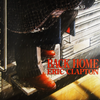



Eric Clapton – Back Home (2LP, Half-speed Mastering)
Rarity - Sealed
Vocals, Guitar : Eric Clapton [click here to see more vinyl featuring Eric Clapton]
Backing Vocals : Sharon White, Michelle John, Lawrence Johnson
Guitar : Doyle Bramhall II, Andy Fairweather Low
Bass : Nathan East
Keyboards : Simon Climie
Drums : Abraham Laboriel Jr., Steve Gadd [click here to see more vinyl featuring Steve Gadd]
Horns : Annie Whitehead, Paul Spong, Roddy Lorimer, Simon Clarke (2), The Kick Horns, Tim Sanders
Organ [Hammond], Piano, Keyboards : Billy Preston
Strings : Gavin Wright, Isobelle Griffiths, Nick Ingman
Guest Musicians : Chris Stainton, John Mayer, Paul Fakhourie, Pino Palladino, Robert Randolph, Stephen Marley, Steve Winwood, Toby Baker, Vince Gill
Written by Eric Clapton (A1, A2, B2, D1, D2, D3), Simon Climie (A1, A2, B2, D1, D2), Stevie Wonder (A3), Syreeta Wright (A3), Charles Simmons (B1), Joseph Jefferson (B1), George Harrison (B3), Doyle Bramhall II (C1, C2), Jeremy Stacey (C1), Mike Elizondo (C2), Susannah Melvoin (C2), Beverly Darnall (C3), Vince Gill (C3)
2LPs, gatefold jacket
Original analog Master tape : YES
Record color : Black
Speed : 33RPM
Size : 12'’
Stereo
Studio
Record Press : RTI
Label : Warner Music , Because sound matters
Original label : Reprise records
Recorded by Alan Douglas
Mixed by Mick Guzauski
Produced by Eric Clapton, Simon Climie
Mastered by Bob Ludwig
Half Speed Mastered by Stan Ricker
Originally released in November 2005
Tracks :
Side A
- So Tired
- Say What You Will
- I'm Going Left
Side B
- Love Don't Love Nobody
- Revolution
- Love Comes To Everyone
Side C
- Lost And Found
- Piece Of My Heart
- One Day
Side D
- One Track Mind
- Run Home To Me
- Back Home
Reviews :
"Eric Clapton claimed in the press release for Back Home, his 14th album of original material, that "One of the earliest statements I made about myself was back in the late '80s, with Journeyman. This album completes that cycle in terms of talking about my whole journey as an itinerant musician and where I find myself now, starting a new family. That's why I chose the title. It's about coming home and staying home." With that in mind, it becomes clearer that the studio albums Clapton released during the '90s did indeed follow some sort of thematic logic. 1989's Journeyman did find Clapton regrouping after a muddled '80s, returning to the bluesy arena rock and smooth pop that had been his signature sound as a solo artist. He followed that with 1994's From the Cradle, where he explicitly returned to the roots of his music by recording an album of blues standards. Four years later, he released Pilgrim, a slick album that had Clapton strengthening his collaboration with producer/co-writer Simon Climie (who first worked with EC on his electronica side project T.D.F.). If Pilgrim touched on father issues, 2001's Reptile loosely returned Clapton to his childhood (complete with a smiling boyhood shot of him on the cover) and found the guitarist struggling with a seemingly diverse selection of material, ranking from '50s R&B to James Taylor. After a brief blues detour on 2004's Me and Mr. Johnson, Clapton returns to the sound and feel of Reptile for Back Home, but he doesn't seem to be as tentative or forced as he did there. Instead, he eases comfortably into the domesticity that isn't just the concept for the album, it's reason for being. In fact, the album doesn't need "back" in its title -- ultimately, the album is just about being home (which, if the center photo of Clapton at home with his three young daughters and wife is to be believed, looks alarmingly similar to the set of Thomas the Tank Engine, complete with a painted rainbow shining through the window).
While it's hard to begrudge the 60-year-old guitarist for finding a happy home after all these years, what is puzzling about this calm, comfortable album is that Clapton is equating domestic bliss with a glossy, consciously classy sound that's swept clean of dirt and grit, or even the blues. Consequently, Back Home is pitched halfway between the lite contemporary soul of Pilgrim and Clapton's time as a Michelob spokesman in the late '80s. Each track rides a tight, professional groove -- sometimes a bluesy vamp, sometimes a reggae jam, usually something soulful but relaxed -- and while instruments sometimes bubble up from the mix (sometimes it's Clapton's guitar, but just as often it's Billy Preston's organ, or occasionally a synth straight out of 1987), the emphasis is always on the smooth, shiny surface. Unlike such peers as Bob Dylan, Elton John, and the Rolling Stones who revitalized their recording careers with back-to-basics moves that stripped their music down to its essence, Clapton seems to harbor an aversion to what he built his reputation on, whether it was the lean, sinewy blues of the Yardbirds and Bluesbreakers or the psychedelic freak-outs of Cream, or even the rootsy rock he learned from Delaney & Bonnie in the '70s. Based on Back Home, it really does seem like he considers Journeyman ground zero for his solo career, but instead of replicating the well-balanced mix of rock, pop, and blues that made that record one of his best solo efforts, he settles into a tasteful adult pop sound that makes this record the ideal soundtrack to a pleasant Sunday afternoon at home with the family." AllMusic Review by Stephen Thomas Erlewine
Half-speed mastering. In half-speed mastering, the whole process is slowed down to half of the original speed. A typical 33 1/3 rpm record is cut at 16 2/3 rpm. The source material is also slowed down (reducing the pitch in the process) meaning the final record will still sound normal when played back. Slowing the whole process down allows more time, which means the end result sounds better and is more efficient — allowing engineering to minimize the effects of inherent limitations within the vinyl format. The result is a more accurate and more open high-frequency response in the half speed vinyl when compared with a normal speed recording.
Ratings:
AllMusic : 2 / 5 ; Discogs : 4.48 / 5



